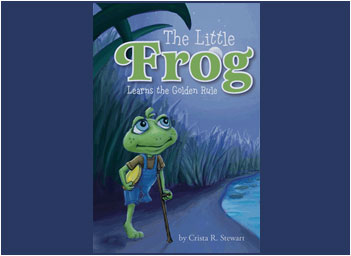EVERY now and then, we all need to find a nice, quiet place where we can reflect on what we’ve been doing with our lives, where our lives are taking us, and what God wants from us. And if we don’t take the initiative to find that space on our own, sometimes the Good Lord will find it for us. Just like he did for the prophet Jonah. Unfortunately for Jonah, that nice, quiet place was somewhere between the esophagus and large intestine of a hungry fish.
Our story begins when God commands Jonah to travel to Nineveh, a big city that had fallen into widespread sin and corruption. God wanted Jonah to tell the Ninevites that he was furious with their wicked behavior and was planning to turn their urban cesspool into the next Sodom and Gomorrah unless they shaped up and fast. However, traveling to Nineveh to bear bad news to these degenerates wasn’t high on Jonah’s bucket list, so he bought a one-way ticket for a boat ride to Tarshish, which was in the complete opposite direction of Nineveh. You have to wonder, did Jonah seriously think God wouldn’t notice?
On the way to Tarshish, Jonah’s boat sailed into a fierce storm. To keep the boat afloat, the crew threw cargo overboard, but the seas kept raging, and the future looked bleak. The storm was so bad that the sailors began to suspect someone on board must have done something to really annoy God. After a thorough investigation, Jonah admitted he had angered God by refusing his assignment and sailing away to Tarshish. Jonah said to them, “Take me up, and throw me into the sea. Then the sea will be calm for you; for I know that because of me this great storm is on you” (Jonah 1:12). The sailors didn’t feel right about pitching Jonah overboard, so they tried their hardest to row to shore. But when the storm grew even more fierce, they abandoned their hero routine and tossed Jonah overboard like a bucket of smelly chum. They did, however, beg God to forgive them for what they were doing. Soon, the seas calmed and the mariners were safe, although still pretty freaked out by the whole experience.
But God had sent a giant fish just for this moment, and it gobbled up Jonah, giving him a distraction-free haven. Sitting inside the creature’s belly, Jonah prayed for forgiveness for having defied God and also thanked the Lord for saving him from the raging seas. After three days and three nights, God “spoke to the fish, and it vomited out Jonah on the dry land” (Jonah 2:10).
Then God spoke to Jonah again. “Arise, go to Nineveh, that great city, and preach to it the message that I give you” (Jonah 3:2). And this time, Jonah did just that. He traveled to Nineveh and put the fear of God in its people—literally. Jonah told the people of Nineveh that God was planning to overthrow them in forty days for their wickedness. The people believed Jonah and repented. Even the king got scared and cried out to God for mercy, telling his people to stop their evil and violence. And God saw their reactions, and he offered his mercy, sparing the city of the destruction he had planned.
Jonah clearly was a gifted preacher, convincing a huge wicked city to repent. But his success didn’t make him happy at all. Truth be told, Jonah wasn’t particularly fond of the Ninevites. In fact, he hated them. The people of Nineveh were Assyrians, rivals of the Jewish people who had treated them brutally in the past. Jonah would have been happier if the Ninevites had ignored his warning and continued their wicked ways because he wanted to watch God eradicate them from the face of the earth. Seeing that Jonah needed a bit of attitude
adjustment, God decided to teach him another lesson.
Jonah had left Nineveh after he finished preaching and was now sitting outside of the city so he would have a front-row seat if God changed his mind and decided to destroy Nineveh after all. Jonah built himself a little hut, and the Lord offered up some comfort for Jonah, providing a lush green vine that grew up over the hut, completely protecting him from the blazing sun. Jonah was extremely grateful for the vine. But the next day God sent a worm to eat away at the vine, leaving Jonah to sizzle in the hot sun like a french fry. He got so
overheated, he fainted.
When Jonah regained consciousness, he was so angry that he prayed to God to just let
him die. Of course, God was at the ready for this teaching moment. He told Jonah something like: “You have a lot of nerve carrying on like the ultimate drama queen over the death of a silly plant. Especially when you wanted me to kill 120,000 Ninevites—actual human beings that were created by none other than yours truly—just because you have a bone to pick with them. You need to put in perspective, my friend, how you value human life. Or else you might find yourself in the belly of another fish.
And, next time, you won’t be so lucky to get puked out of its mouth. On the next go-around, you might just find yourself shooting out the other end as oceanic fertilizer.”
Presumably, Jonah got the point.
This story teaches us two important lessons. First, when God calls, you need to answer. That call could be to do something as simple as sharing your faith with a friend or volunteering for a church project or helping someone in need. Or the call could be to do something more demanding, like missionary work or entering the seminary. God does have a specific plan for each of us, and we will only experience true joy and meaning in our lives if we answer God’s call. Of course, we have the right to decline.
We also have the option to close the door on God altogether and pretend that he doesn’t even exist. But you must realize that God holds us accountable for our actions—and also for our inaction. When we try to hide from the Lord and refuse his calling for our lives, we probably won’t be swallowed up by a giant fish. But there will be consequences. At the very least, we’ll feel the emptiness that comes from living a life separate from God.
The book of Jonah also provides a second lesson, although lots of people miss this one: God does not respond well when we wish harm or misfortune on other people—even our enemies. Jesus taught us that you must “love your enemies, bless those who curse you, do good to those who hate you, and pray for those who mistreat you and persecute you, that you may be children of your Father who is in heaven” (Matt.5:44–45). As with the Ninevites, God loves every person that he created and, although he punishes those who do evil, he gives everyone an opportunity to repent and come home to him.
At one time or another, most of us fall into that dark place where we let our anger and resentment toward someone get the best of us. But when we conclude that other people are worthy of God’s punishment, we need to remind ourselves that we have only a tiny glimpse of their life and motives. Only God fully knows what is inside the hearts and minds of people who have hurt us. So, it’s not for us to judge who should receive God’s blessings and who deserves punishment. Our job is to remain obedient to the Lord and to love everyone, as he has commanded. If our enemies repent and receive God’s blessing, we should rejoice and be glad. (Excerpted from The Bible: Enter Here written by Spencer C. Demetros.)
To buy the book, click here.
The writer is a lifelong student of scripture, bestselling author, and an attorney. The book, The Bible: Enter Here won first place in the prestigious 2022 IBPA’s Benjamin Franklin Awards (Religion category).





















